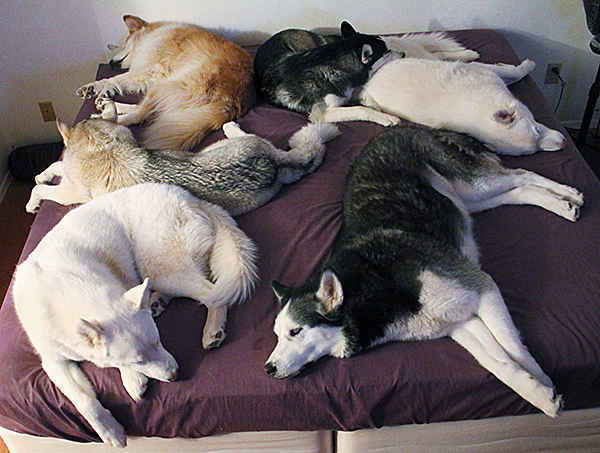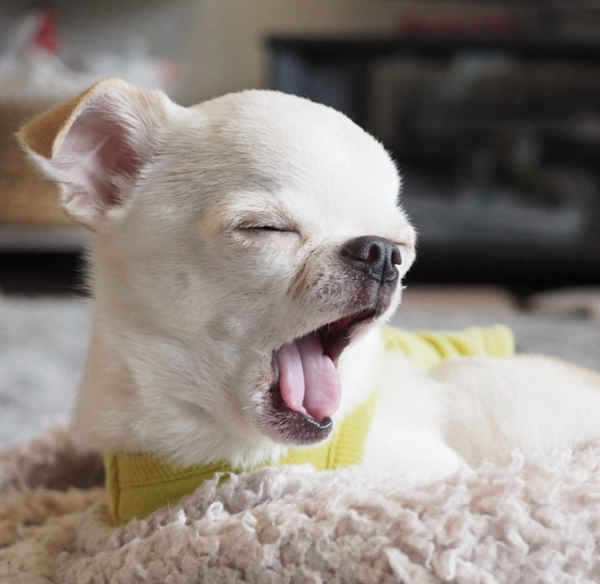Why Do Dogs Sleep So Much?
Dogs sleep a lot for several reasons, much like humans do.

Here are some key reasons:
Rest and Recovery
Dogs, like humans, need sleep to rest their bodies and minds after a day of activity. Sleep helps them recover from physical exertion and maintain overall health. For example, after a long walk or a day of playing fetch, your pup might crash for a nap to recharge.
Energy Conservation
Dogs are opportunistic sleepers, meaning they can catch z’s whenever they get a chance. This behavior stems from their evolutionary past as predators and scavengers. In the wild, conserving energy by sleeping during periods of inactivity helped them survive when food was scarce.
Even though domestic dogs don’t hunt for their food, this instinct to conserve energy through sleep remains.
Growth and Development
Puppies, in particular, need plenty of sleep for their growth and development. Just like human babies, puppies spend a significant portion of their day sleeping to support their rapid growth and to help their bodies develop properly.
Temperature Regulation
Dogs regulate their body temperature differently from humans. They don’t sweat as efficiently, so they rely on panting and seeking out cooler spots to stay comfortable. Sleeping allows dogs to conserve energy and avoid overheating during hot periods of the day.
Sensory Overload
Dogs have heightened senses compared to humans, which means they can become easily overstimulated. Sleep provides them with a break from the constant barrage of sensory input, helping to keep them mentally balanced and less stressed.
Now for some interesting facts about canine sleep

- Sleep Patterns Vary
Dogs, like people, have different sleep patterns depending on their age, breed, and individual traits. While the average adult dog sleeps around 12-14 hours a day, puppies and senior dogs may sleep even more.
- REM Sleep
Dogs experience REM (rapid eye movement) sleep, just like humans do. This is the stage of sleep associated with dreaming. You might notice your dog twitching or making small noises while asleep, indicating they’re in the REM stage.
- Co-Sleeping
Many dogs enjoy sleeping close to their human companions. This behavior stems from their pack mentality, as dogs are naturally social animals. Sharing sleeping space with their owners can provide them with a sense of security and strengthen the bond between human and canine.
- Sleep Position Meaning
The way your dog sleeps can sometimes reflect their mood or level of comfort. For instance, a dog curling up in a tight ball might be trying to conserve body heat or seeking comfort, while a dog stretched out on their side might be feeling relaxed and secure.
Overall, while it might seem like dogs sleep a lot, it’s perfectly natural behavior that serves important physiological and psychological functions.












